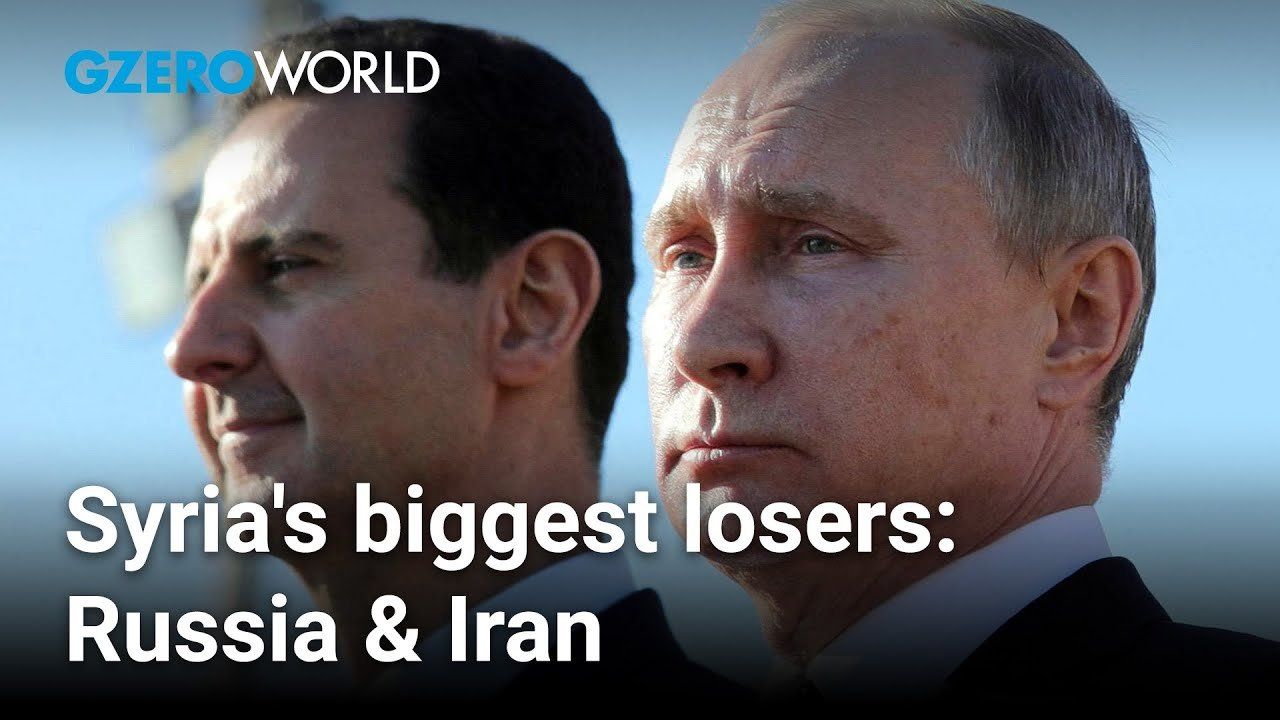GZERO World Clips
Russia and Iran just lost their "crown jewel" in the Middle East - Kim Ghattas

- YouTube

Was Assad ever truly a stabilizing force? On GZERO World, Kim Ghattas, a contributing editor at the Financial Times and author of Black Wave, unpacks Syria’s collapse, Iran and Russia’s strained influence, and what’s next for Tehran on the global stage.
Ghattas challenges the notion that Iran and Russia willingly abandoned Syria in the days before Assad's fall, arguing instead that their diminished capacities forced their retreat. "The Islamic Republic of Iran and the Russians don’t give up easily on the crown jewel of their influence in the Mediterranean," she asserts, explaining how the war in Ukraine has strained Russia’s resources. Similarly, Iran's "axis of resistance," a cornerstone of its regional strategy, is faltering as the country faces internal transitions and external threats. “They’ve stretched themselves too thin… from Yemen to Syria, their investments are crumbling,” Ghattas observes.
As the discussion pivots to Iran’s next steps, Bremmer asks whether the Islamic Republic will seek engagement with adversaries or double down on its nuclear ambitions. Ghattas believes both paths are possible, emphasizing that Iran is grappling with profound internal changes. “They want to be accepted by the international community,” she notes, referencing Iran’s historical yearning for legitimacy. However, with its proxy forces unraveling and vulnerabilities exposed, Tehran’s future remains precarious. “This is, in essence, the end of Iran's strategy of proxy militias around the region,” Ghattas says.
New digital episodes of GZERO World are released every Monday on YouTube. Don't miss an episode: subscribe to GZERO's YouTube channel and turn on notifications (🔔).
In this Quick Take, Ian Bremmer reacts to President Trump’s State of the Union address, calling it “a rehashing of the greatest hits” with little new policy direction.
In terms of volume, Russia’s fossil fuel exports have declined a little since the full-scale invasion of Ukraine began in 2022. In terms of revenue, they’ve dropped significantly.
At the Munich Security Conference, a group of global technology providers, including Microsoft, announced the Trusted Tech Alliance — committed to shared, verifiable principles for trusted, transparent, and resilient technology across borders. At a moment of economic volatility and zero-sum technological competition, countries and customers are demanding greater accountability from technology providers. The Alliance addresses this by bringing together companies from across Africa, Asia, Europe, and North America around shared commitments: transparent governance, secure development practices, supply chain oversight, open digital ecosystem, and respect for the rule of law—ensuring the benefits of emerging technologies strengthen public trust while driving job creation and economic growth. Learn about the Trusted Tech Alliance here.